Synopsis
West Germany, and West Berlin, become more affluent, prompting a surge of East Germans to cross the borders in Berlin, kept open under the Four Power Agreement on Berlin. Khrushchev's demands that the Americans, British and French leave Berlin are opposed, and prospects for a peaceful resolution are dashed after the Soviets pull out of the Paris Summit in 1960 as a response to the U-2 incident. Overnight on August 12, 1961 East German police and military units divided the city of Berlin, and work commenced on building the Berlin Wall. Initial tensions culmulate in a stand-off between US and Soviet tanks. Kennedy visits Berlin in June 1963 and delivers his Ich bin ein Berliner speech. Interviewees include Anatoly Gribkov, Valentin Falin, Stefan Heym, Egon Bahr, Raymond L. Garthoff and Conrad Schumann. The pre-credits scene features East Berliners seeking to flee into the West.
- Programme: Cold War
- Episode: 9: The Wall: 1958-1963
- Channel: BBC Two
- Broadcast year: 1998
- History | The Cold War
Licence: ERA Licence required
UK only
Staff and students of licensed education establishments only
Cannot be adapted
Add Notes
More clips from Cold War
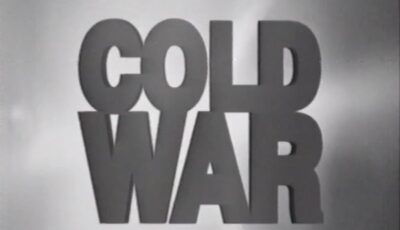
10: Cuba: 1959-1962 | Cold War
10: Cuba: 1959-1962 | Cold War
Fidel Castro comes to power following the Cuban Revolution. Cuba aligns itself with the Soviet Union and the government starts nationalising A...

11: Vietnam: 1954-1968 | Cold War
11: Vietnam: 1954-1968 | Cold War
After losing the Battle of Dien Bien Phu the French leave Vietnam. A stream of refugees flee to the south after the Communist north institu...

12: MAD: 1960-1972 | Cold War
12: MAD: 1960-1972 | Cold War
The United States nuclear strategy of counterforce, intended to counter a Soviet conventional attack by targeting military facilities, is discr...

14: Red Spring: 1960s | Cold War
14: Red Spring: 1960s | Cold War
Likewise the Soviet Union started the decade with growing openness and optimism. There was also an emerging cohort of youth with no memory o...

15: China: 1949-1972 | Cold War
15: China: 1949-1972 | Cold War
Following the Chinese Revolution Mao Zedong aligns China firmly with the Soviet Union. China becomes the recipient of Soviet aid, supports Co...

16: Détente: 1969-1975
16: Détente: 1969-1975
Nixon builds closer relations with China and the USSR, hoping to leverage an honourable US exit from Indochina. The Soviet Union is fearful of a US-C...

17: Good Guys, Bad Guys: 1967-1978 | Cold War
17: Good Guys, Bad Guys: 1967-1978 | Cold War
Under Détente the superpowers continued their rivalry, but carefully avoided direct conflict by courting allies in the developi...

18: Backyard: 1954-1990 | Cold War
18: Backyard: 1954-1990 | Cold War
The United States saw the emergence of leftist movements in different Latin American countries as threatening to its commercial interests,...

19: Freeze: 1977-1981 | Cold War
19: Freeze: 1977-1981 | Cold War
Carter's ambitious proposals for total multilateral nuclear disarmament are rejected by Brezhnev; his championing of human rights does not w...

2: Iron Curtain: 1945-1947 | Cold War
2: Iron Curtain: 1945-1947 | Cold War
The wartime allies demobilise - the United States enjoys its economic strength and resurgence while Britain and the rest of Europe is e...

20: Soldiers of God: 1975-1988 | Cold War
20: Soldiers of God: 1975-1988 | Cold War
Nur Mohammad Taraki comes to power in Afghanistan and attempts to modernise the country on Marxist-Leninist lines, provoking a rebe...

21: Spies: 1944-1994 | Cold War
21: Spies: 1944-1994 | Cold War
Throughout the Cold War both sides sought intelligence about their opponents using spies, satellites and other means. For political reasons, ...

22: Star Wars: 1981-1988 | Cold War
22: Star Wars: 1981-1988 | Cold War
Reagan's 1983 ''Evil Empire'' speech sets the tone for a more aggressive US posture against the Soviet Union, and the costly arms race is...

23: The Wall Comes Down: 1989 | Cold War
23: The Wall Comes Down: 1989 | Cold War
Gorbachev makes clear Eastern European countries were free to determine their own destinies. In Poland Solidarity enters into negoti...

3: Marshall Plan: 1947-1952 | Cold War
3: Marshall Plan: 1947-1952 | Cold War
For both altruistic and self-serving purposes, the United States provides massive grants of aid to the countries of Europe in the form...

4: Berlin: 1948-1949 | Cold War
4: Berlin: 1948-1949 | Cold War
By 1947, the United States placed as a high priority the revival of the German economy, an approach opposed by the Soviet Union. After the in...

5: Korea: 1949-1953 | Cold War
5: Korea: 1949-1953 | Cold War
Korea after the Second World War was occupied by both the Soviets and the Americans, who respectively installed Kim Il Sung and Syngman Rhee a...

6: Reds: 1948-1953 | Cold War
6: Reds: 1948-1953 | Cold War
The fears the leadership of both sides had were projected inwards towards their own people. In the United States the House Committee on Un-Amer...

7: After Stalin: 1953-1956 | Cold War
7: After Stalin: 1953-1956 | Cold War
Nikita Khrushchev becomes Soviet leader after the death of Stalin. Khrushchev rolls back a number of oppressive measures that existed u...

8: Sputnik: 1949-1961 | Cold War
8: Sputnik: 1949-1961 | Cold War
As a consequence of the atomic spies, the Soviet Union joined the nuclear club, and the two superpowers compete to develop their nuclear ars...
More resources about The Cold War
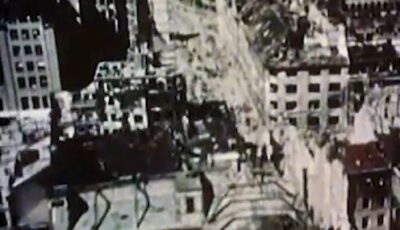
1: Berlin 1945-48 | History File
1: Berlin 1945-48 | History File
Compilation of secondary schools programme about the Cold War, featuring Berlin Crisis, Hungarian Uprising, rise of Soviet leader Nikita Khr...
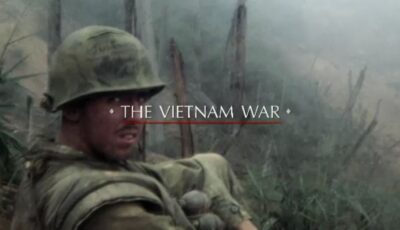
1: Deja Vu (1858-1961) | The Vietnam War
1: Deja Vu (1858-1961) | The Vietnam War
Revolutionaries led by Ho Chi Minh end French colonial occupation. Vietnam is divided in two at Geneva.
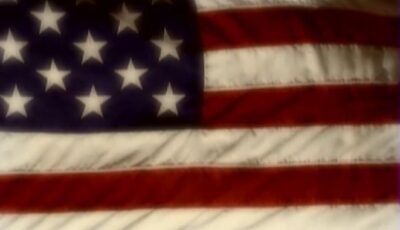
1: Lyndon Johnson's War | Wheeler on America
1: Lyndon Johnson's War | Wheeler on America
A look back at the classic series Wheeler on America from 1996. Charles Wheeler traces changes in US society since the liberal r...

10: Cuba: 1959-1962 | Cold War
10: Cuba: 1959-1962 | Cold War
Fidel Castro comes to power following the Cuban Revolution. Cuba aligns itself with the Soviet Union and the government starts nationalising A...

10: The Weight of Memory (March 1973-Onward) | The Vietnam War
10: The Weight of Memory (March 1973-Onward) | The Vietnam War
While Watergate forces Nixon to resign, the Vietnamese continue to savage one another.
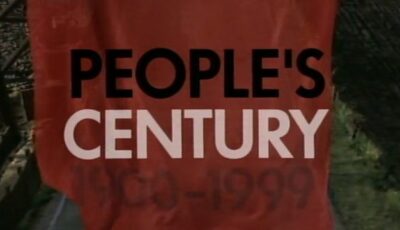
11: 1945: Brave New World | People's Century
11: 1945: Brave New World | People's Century
Despite being allies against Hitler, disagreement and rivalry soon break out between the Soviet Union and the West, leading to t...

11: The Cold War Confrontation | Twentieth Century History
11: The Cold War Confrontation | Twentieth Century History
The Berlin blockade of 1948-49 and the Korean War 1950-53.

11: Vietnam: 1954-1968 | Cold War
11: Vietnam: 1954-1968 | Cold War
After losing the Battle of Dien Bien Phu the French leave Vietnam. A stream of refugees flee to the south after the Communist north institu...

12: 1948: Boomtime | People's Century
12: 1948: Boomtime | People's Century
Europe is exhausted and impoverished in the years after the Second World War. The United States implements the Marshall Plan to rebuild...

12: MAD: 1960-1972 | Cold War
12: MAD: 1960-1972 | Cold War
The United States nuclear strategy of counterforce, intended to counter a Soviet conventional attack by targeting military facilities, is discr...

12: Mr Kennedy and Mr Khruschev | Twentieth Century History
12: Mr Kennedy and Mr Khruschev | Twentieth Century History
The contest between the United States and the Soviet Union between 1961 and 1963 leading to the Cuban Missile Cri...

14: Red Spring: 1960s | Cold War
14: Red Spring: 1960s | Cold War
Likewise the Soviet Union started the decade with growing openness and optimism. There was also an emerging cohort of youth with no memory o...

15: 1951: Asia Rising | People's Century
15: 1951: Asia Rising | People's Century
Through thrift, hard work and discipline, Japan and later South Korea enjoy economic miracles that bring growth, prosperity and conf...

15: China: 1949-1972 | Cold War
15: China: 1949-1972 | Cold War
Following the Chinese Revolution Mao Zedong aligns China firmly with the Soviet Union. China becomes the recipient of Soviet aid, supports Co...

16: Détente: 1969-1975
16: Détente: 1969-1975
Nixon builds closer relations with China and the USSR, hoping to leverage an honourable US exit from Indochina. The Soviet Union is fearful of a US-C...

17: Good Guys, Bad Guys: 1967-1978 | Cold War
17: Good Guys, Bad Guys: 1967-1978 | Cold War
Under Détente the superpowers continued their rivalry, but carefully avoided direct conflict by courting allies in the developi...

18: Backyard: 1954-1990 | Cold War
18: Backyard: 1954-1990 | Cold War
The United States saw the emergence of leftist movements in different Latin American countries as threatening to its commercial interests,...

19: Freeze: 1977-1981 | Cold War
19: Freeze: 1977-1981 | Cold War
Carter's ambitious proposals for total multilateral nuclear disarmament are rejected by Brezhnev; his championing of human rights does not w...

2: Hungary 1956 | History File
2: Hungary 1956 | History File
Compilation of secondary schools programme about the Cold War, featuring Berlin Crisis, Hungarian Uprising, rise of Soviet leader Nikita Khrus...

2: Iron Curtain: 1945-1947 | Cold War
2: Iron Curtain: 1945-1947 | Cold War
The wartime allies demobilise - the United States enjoys its economic strength and resurgence while Britain and the rest of Europe is e...
